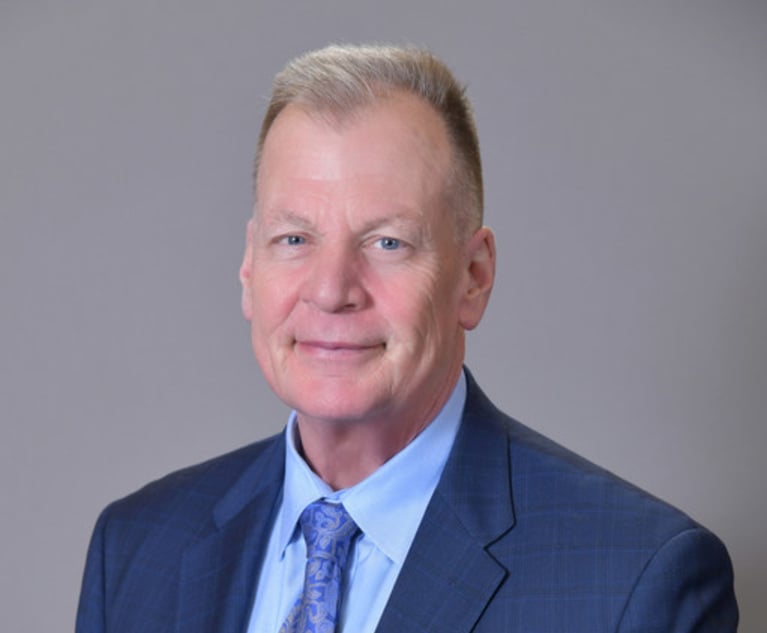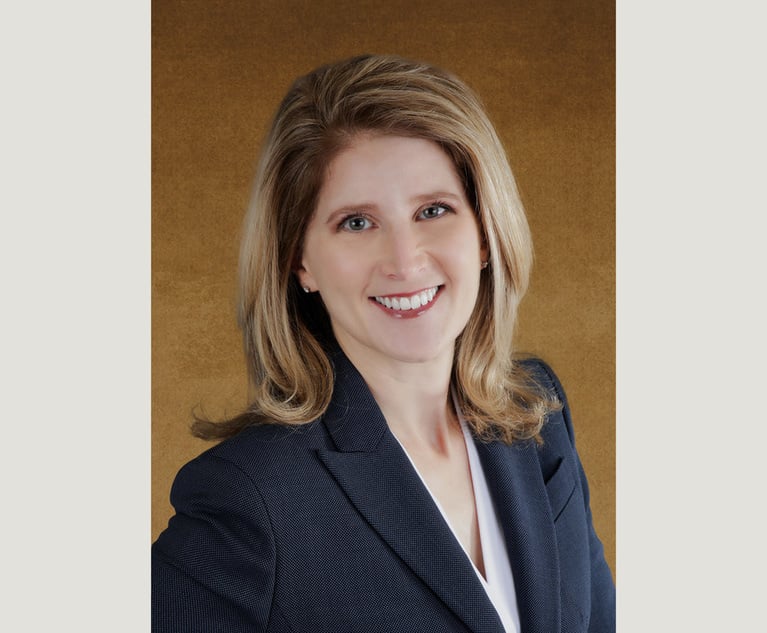2018 Unsung Hero—Gaetano Piccirilli
Piccirilli, a litigation partner with Klehr Harrison Harvey Branzburg, wears many hats in the legal and business, philanthropic and public service communities.
June 21, 2018 at 12:59 PM
4 minute read
By The Legal Intelligencer
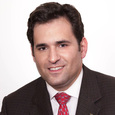 Gaetano Piccirilli Klehr Harrison Harvey Branzburg Piccirilli, a litigation partner with Klehr Harrison Harvey Branzburg, wears many hats in the legal and business, philanthropic and public service communities. In 2017, he tried and won the largest Act 135 (the Abandoned and Blighted Property Conservatorship Act) filing in Pennsylvania over the Trigen Steam plant. The plant once fed the Center City Philadelphia steam grid, but has been out of operation for almost three decades. Laden with asbestos and other blighting influences, the plant sits close to the new Reading Viaduct elevated park. As a result of Piccirilli's work, the asbestos and blight are being abated under court supervision. Piccirilli is now serving his second term as chairman of the Caring People Alliance, a large social services nonprofit operating in and around Philadelphia.
Gaetano Piccirilli Klehr Harrison Harvey Branzburg Piccirilli, a litigation partner with Klehr Harrison Harvey Branzburg, wears many hats in the legal and business, philanthropic and public service communities. In 2017, he tried and won the largest Act 135 (the Abandoned and Blighted Property Conservatorship Act) filing in Pennsylvania over the Trigen Steam plant. The plant once fed the Center City Philadelphia steam grid, but has been out of operation for almost three decades. Laden with asbestos and other blighting influences, the plant sits close to the new Reading Viaduct elevated park. As a result of Piccirilli's work, the asbestos and blight are being abated under court supervision. Piccirilli is now serving his second term as chairman of the Caring People Alliance, a large social services nonprofit operating in and around Philadelphia. What career path would you have pursued if you weren't a lawyer?
After learning that “professional conversationalist” was not specifically a career path, I whittled it down to practicing law or academia. I thought both would be stimulating, involve research and writing, as well as public speaking. I chose law, and, along the way, I leaned that listening was more valuable than speaking.
Name a mentor or someone you admire.
I have been fortunate to have several mentors in my life and career, both family and friends. For different reasons, Albert Mezzaroba, Lisa Washington, Mark Feller, Anthony Merlino and Angelo Valleta. Each has taught me something different about life, family, law and business. Each has taken time out of busy lives to talk with me as I have grown.
In terms of admiration, my parents, Angela and Angelo Morelli, deserve that honor. Through them, I learned perseverance, how to pick myself up, and to check my ego at the door. They also fed me.
What is the best advice you ever received?
There are a few nuggets of wisdom to share, but I'd like to focus on two. First regards work-life balance. For several years after law school, I did not love the legal profession. A former colleague explained to me that while he loved his work, he said it was a means to an end. While I don't agree, his point of making and enjoying time with friends and family stuck with me. I learned not to resent the long hours at the office and to take command of my out-of-work life. Second, involved not just looking at clients and problems mechanically. But that clients want you to understand, and express that you understand, how they feel about a particular matter. This is especially the case in litigation.
In 50 words or less, what does the legal profession need to do to prepare the next generation of lawyers?
Young lawyers must be given opportunities to fail. I'm not suggesting allowing young lawyers to run away with matters. Training must be gauged appropriately. Give young lawyers opportunities to counsel clients, participate in hearings, take that deposition, or take the lead in drafting an agreement. I firmly believe that success is tied to mistakes and learning from them.
Also, the continued trend of hyper-specialization is not healthy for the growth of young lawyers. For example, too many young lawyers are heading toward partnership having never taken a key deposition or asked questions on the record. These are fundamental skills that must be learned either before or along with specialization.
This content has been archived. It is available through our partners, LexisNexis® and Bloomberg Law.
To view this content, please continue to their sites.
Not a Lexis Subscriber?
Subscribe Now
Not a Bloomberg Law Subscriber?
Subscribe Now
NOT FOR REPRINT
© 2025 ALM Global, LLC, All Rights Reserved. Request academic re-use from www.copyright.com. All other uses, submit a request to [email protected]. For more information visit Asset & Logo Licensing.
You Might Like
View All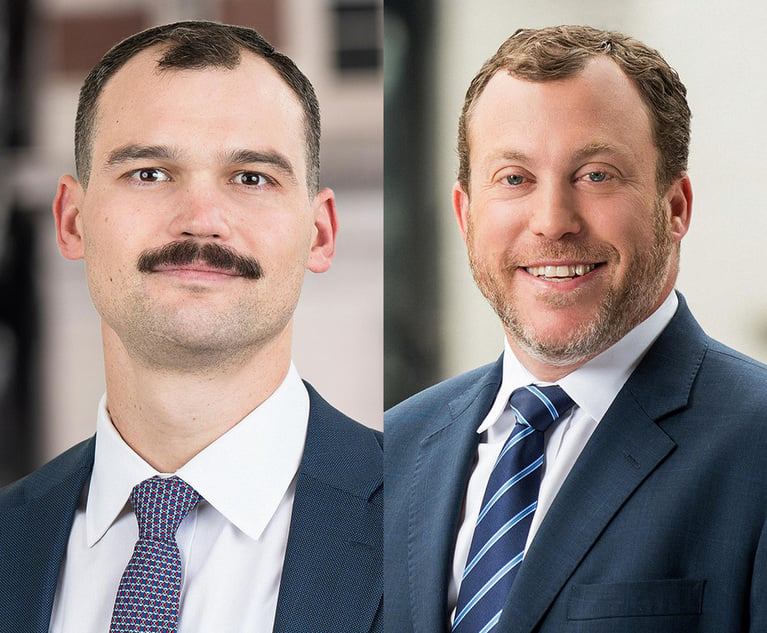
Pa. Supreme Court to Decide Enforceability of 'Browsewrap' Arbitration Agreements
8 minute read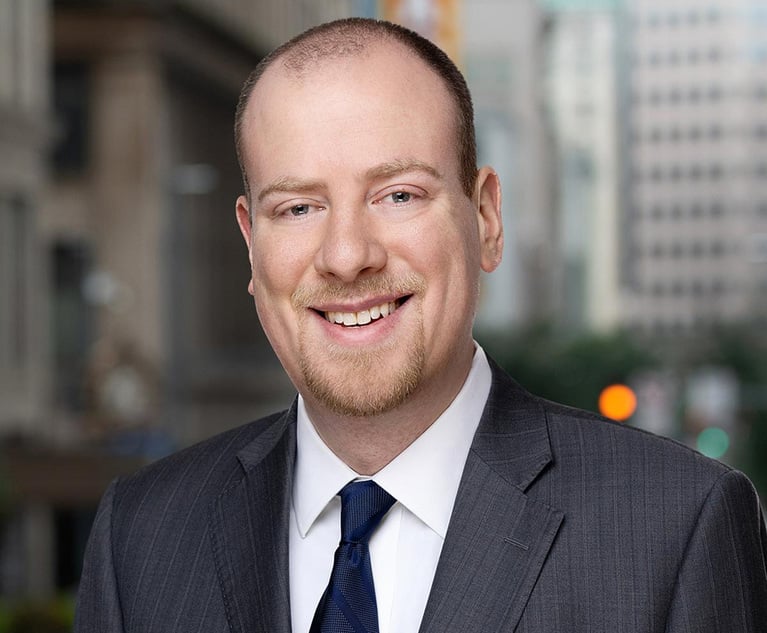
From a Mediator’s Perspective: Common Mis-steps That Parties Make at Mediation
6 minute readTrending Stories
- 1South Florida Attorney Charged With Aggravated Battery After Incident in Prime Rib Line
- 2'A Death Sentence for TikTok'?: Litigators and Experts Weigh Impact of Potential Ban on Creators and Data Privacy
- 3Bribery Case Against Former Lt. Gov. Brian Benjamin Is Dropped
- 4‘Extremely Disturbing’: AI Firms Face Class Action by ‘Taskers’ Exposed to Traumatic Content
- 5State Appeals Court Revives BraunHagey Lawsuit Alleging $4.2M Unlawful Wire to China
Who Got The Work
J. Brugh Lower of Gibbons has entered an appearance for industrial equipment supplier Devco Corporation in a pending trademark infringement lawsuit. The suit, accusing the defendant of selling knock-off Graco products, was filed Dec. 18 in New Jersey District Court by Rivkin Radler on behalf of Graco Inc. and Graco Minnesota. The case, assigned to U.S. District Judge Zahid N. Quraishi, is 3:24-cv-11294, Graco Inc. et al v. Devco Corporation.
Who Got The Work
Rebecca Maller-Stein and Kent A. Yalowitz of Arnold & Porter Kaye Scholer have entered their appearances for Hanaco Venture Capital and its executives, Lior Prosor and David Frankel, in a pending securities lawsuit. The action, filed on Dec. 24 in New York Southern District Court by Zell, Aron & Co. on behalf of Goldeneye Advisors, accuses the defendants of negligently and fraudulently managing the plaintiff's $1 million investment. The case, assigned to U.S. District Judge Vernon S. Broderick, is 1:24-cv-09918, Goldeneye Advisors, LLC v. Hanaco Venture Capital, Ltd. et al.
Who Got The Work
Attorneys from A&O Shearman has stepped in as defense counsel for Toronto-Dominion Bank and other defendants in a pending securities class action. The suit, filed Dec. 11 in New York Southern District Court by Bleichmar Fonti & Auld, accuses the defendants of concealing the bank's 'pervasive' deficiencies in regards to its compliance with the Bank Secrecy Act and the quality of its anti-money laundering controls. The case, assigned to U.S. District Judge Arun Subramanian, is 1:24-cv-09445, Gonzalez v. The Toronto-Dominion Bank et al.
Who Got The Work
Crown Castle International, a Pennsylvania company providing shared communications infrastructure, has turned to Luke D. Wolf of Gordon Rees Scully Mansukhani to fend off a pending breach-of-contract lawsuit. The court action, filed Nov. 25 in Michigan Eastern District Court by Hooper Hathaway PC on behalf of The Town Residences LLC, accuses Crown Castle of failing to transfer approximately $30,000 in utility payments from T-Mobile in breach of a roof-top lease and assignment agreement. The case, assigned to U.S. District Judge Susan K. Declercq, is 2:24-cv-13131, The Town Residences LLC v. T-Mobile US, Inc. et al.
Who Got The Work
Wilfred P. Coronato and Daniel M. Schwartz of McCarter & English have stepped in as defense counsel to Electrolux Home Products Inc. in a pending product liability lawsuit. The court action, filed Nov. 26 in New York Eastern District Court by Poulos Lopiccolo PC and Nagel Rice LLP on behalf of David Stern, alleges that the defendant's refrigerators’ drawers and shelving repeatedly break and fall apart within months after purchase. The case, assigned to U.S. District Judge Joan M. Azrack, is 2:24-cv-08204, Stern v. Electrolux Home Products, Inc.
Featured Firms
Law Offices of Gary Martin Hays & Associates, P.C.
(470) 294-1674
Law Offices of Mark E. Salomone
(857) 444-6468
Smith & Hassler
(713) 739-1250




